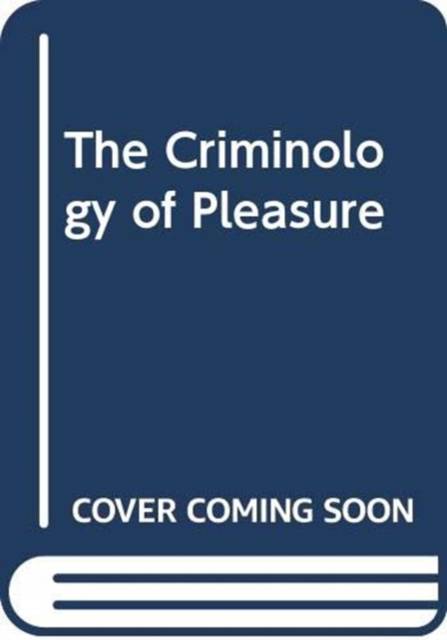
- Afhalen na 1 uur in een winkel met voorraad
- Gratis thuislevering in België vanaf € 30
- Ruim aanbod met 7 miljoen producten
- Afhalen na 1 uur in een winkel met voorraad
- Gratis thuislevering in België vanaf € 30
- Ruim aanbod met 7 miljoen producten
Zoeken
Omschrijving
The Criminology of Pleasure offers a new way of thinking about crime and crime control, as it maintains that the very rationale of the criminal justice system lies in the channelling of desire and regulating of pleasure. Criminology has only confronted the importance of the desire/pleasure nexus tangentially: through the reference to transgression, resistance and edge-work, and in its concern with social marginalization. The Criminology of Pleasure, however, argues for the fundamental importance of desire/pleasure in understanding social order and control. Whilst ostensibly concerned with crime and its control, the criminal justice system is, the authors argue, centred upon a more fundamental project - that of managing desire. Precisely what this means is systematically articulated here: first, by considering how various pleasures have been regulated in history; and, second, by mapping the key ways in which desire is now regulated. In a political landscape that has witnessed attempts both on the part of the political right and left to attack and replace criminology with something else - a science of crime or a science of social harm - this book not only provides a highly original analysis; but also a radical, innovative and heretical defence of criminology.
Specificaties
Betrokkenen
- Auteur(s):
- Uitgeverij:
Inhoud
- Aantal bladzijden:
- 224
- Taal:
- Engels
Eigenschappen
- Productcode (EAN):
- 9780415547789
- Verschijningsdatum:
- 1/01/2021
- Uitvoering:
- Hardcover
- Formaat:
- Genaaid
- Afmetingen:
- 159 mm x 235 mm

Alleen bij Standaard Boekhandel
+ 293 punten op je klantenkaart van Standaard Boekhandel
Beoordelingen
We publiceren alleen reviews die voldoen aan de voorwaarden voor reviews. Bekijk onze voorwaarden voor reviews.











